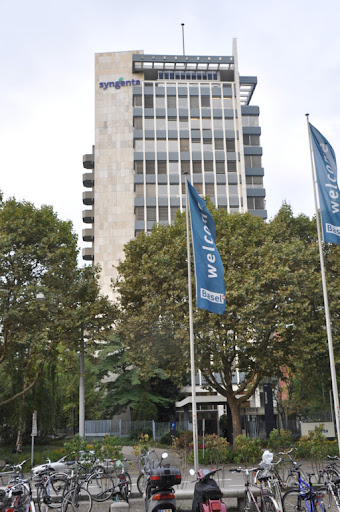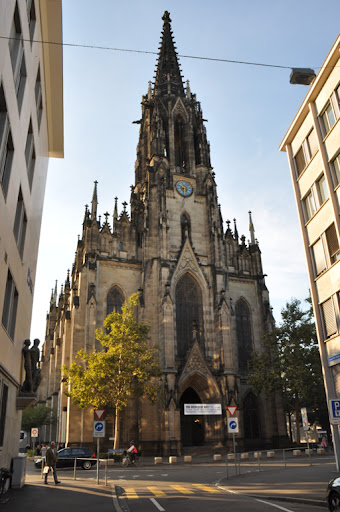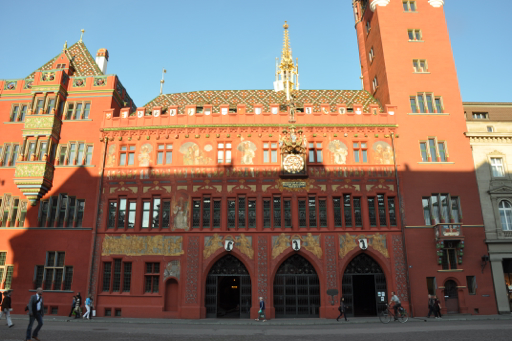Here we are in Basel, Switzerland a beautiful city in the north west corner of Switzerland, situated on the banks of the Rhine river with the German mountains to the north and the French mountains to the west boarding the city. Basel is a city of approx 300,000 people with quite a regional feel about it. Again a city that has a steep history dating back to the 11th century, with the original city walls still very evident.
You can see in the last couple of photos one of the houses that was built in the 14th century, this type of construction was quite common with buildings being wider at the top than the bottom, this was due to property tax being charged based on the size of the footprint of the ground floor, so to gain extra space you simply built the house in a stepped fashion getting wider as you went up. Also the beam type construction was used as land ownership was quite volatile at that time with wars etc residents were never sure whether they would get to keep the land or not, so the construction was such that it could be dismantled and moved at any time. Not sure how far into the future they were looking as most of the houses have been there for around 500 years, quite incredible.
While in Basel I was able to catch up with Jason Gill and Linda, I have not seen Jason for some 20 years since child hood, so was great to catch up on old friends, he now works for Novartis a pharmaceutical company in Basel working on Breast cancer research.
The main reason for the trip to Basel was to meet with Syngenta and visit there global seed care institute, wow what a place.
Benoit Hussherr was my host for the day, with meetings to start with with Franz Brandl , Global Head of seed care with some frank discussions on the future directions of product development and alternative treatment options, very valuable in understanding where someone in his position looks to for development, it has certainly been refreshing to hear what these guys have to say and also how much technical knowledge and evidence back up they have. Gives you confidence in what the big companies take to market, as they certainly have a large amount of scrutiny put on everything they do.
After some more discussions it was off to Stien where the research centre is, this is about 30km from Basel to the East.
This facility was extraordinary with the complete development of products and research happening here, interestingly I did not resize that once a new compound or active is identified it could be either a herbicide, insecticide, fungicide or nemacide and this is only established once intense testing and evaluation is completed.
With over 5000 compounds returning a positive result for a mode of action, it is no wonder it costs 1 billion dollars to research and develop products each year.
This was a fantastic opportunity for me to fire all the hard questions at the guys who were at the coal face guiding the research, interestingly what is at the forefront of gaining a yield advantage is achieving stress tolerance in plants, ie. making them stronger in handling, heat, cold and moisture stress, having said that there are so many variables involved with this that, consistent data and results does not exist and as such research goes on.
One thing that I am very excited about is the near prospect of crop modelling software being available, what a tool that will be, in evaluating a mode of action and guiding your decision making process for whole crop mangement.
Next we are off to Köln or Colonge as it is known.











No comments:
Post a Comment